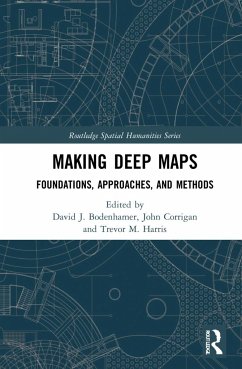This book explores how we create deep maps, delving into the development of methods and approaches that move beyond standard two-dimensional cartography.
Deep mapping offers a more detailed exploration of the world we inhabit. Moving from concept to practice, this book addresses how we make deep maps. It explores what methods are available, what technologies and approaches are favorable when designing deep maps, and what lessons assist the practitioner during their construction. This book aims to create an open-ended way in which to understand complex problems through multiple perspectives, while providing a means to represent the physical properties of the real world and to respond to the needs of contemporary scholarship. With contributions from leading experts in the spatial humanities, chapters focus on the linked layers of quantitative and qualitative data, maps, photographs, images, and sound that offer a dynamic view of past and present worlds.
This innovative book is the first to offer these insights on the construction of deep maps. It will be a key point of reference for students and scholars in the digital and spatial humanities, geographers, cartographers, and computer scientists who work on spatiality, sensory experience, and perceptual learning.
Deep mapping offers a more detailed exploration of the world we inhabit. Moving from concept to practice, this book addresses how we make deep maps. It explores what methods are available, what technologies and approaches are favorable when designing deep maps, and what lessons assist the practitioner during their construction. This book aims to create an open-ended way in which to understand complex problems through multiple perspectives, while providing a means to represent the physical properties of the real world and to respond to the needs of contemporary scholarship. With contributions from leading experts in the spatial humanities, chapters focus on the linked layers of quantitative and qualitative data, maps, photographs, images, and sound that offer a dynamic view of past and present worlds.
This innovative book is the first to offer these insights on the construction of deep maps. It will be a key point of reference for students and scholars in the digital and spatial humanities, geographers, cartographers, and computer scientists who work on spatiality, sensory experience, and perceptual learning.

